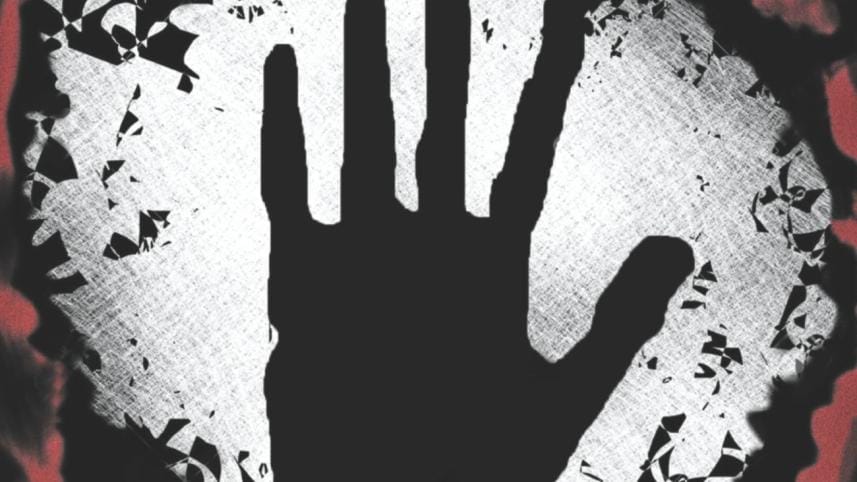Petty causes, demonic crimes, a way out

The surge in sadistic crimes before and after the Eid has given us some bone-chilling realisations about where our society is headed.
There were two contradictions in the overall scenario: One, the tranquil rural settings to the barbarities unleashed, apparently quite out of step with the surroundings; and two, they were committed at the closing days of Ramadan peaking up to Eid-ul-Fitr. This has been mindlessly in contrast to the auspicious time-span marked by religious fervour, tolerance and fellow-feeling.
As for the irony of the crimes in idyllic rural environ, the explanation is, the law enforcement outreach falls way short of it. But there is a deeper analytical reason as follows: The process of urbanisation, mobile communication and multiple TV channels have had effects on the rural psyche, both good and bad. Depending on their dispositions, users pick up messages and imagery that best suits their optical lenses, so to speak.
Ramadan and Eid have traditionally offered windows of opportunity for ceasefires in Middle Eastern wars and even initiation of talks to bridge differences between contending parties. Although they would relapse into their old mould downstream, at least there was a welcome reprieve. Even this is changing during the holy month with the IS bombings unabated and interminable counter onslaughts from the defending side. So that bit of changing scenario couldn't go unnoticed in the rest of the world.
The plethora of recent crimes shows a devilish pattern: Gouging out the eyes of a woman, hacking sleeping victims to death, bruising them with bricks, decapitating the elbows of a person, an adolescent being beaten and dumped into the river with limbs tied up, even an annoyed mother hurling a child on the floor causing her death. The picture of tying up children with a tree is the height of child right abuse. Even so, the media could only perhaps capture a fractionated picture of the whole.
The causes are identifiable but the motives do not apparently relate to the grievousness of crimes being committed over petty matters like, for instance, suspected stealing of a pigeon.
The barbaric punch on the vulnerable stems from the unshakable belief that they can do as they please without having to be answerable to anyone. Then there is the fear of the villain that dulls the obligation of any conscionable person to approach any community leader or policeman for intervention. Any thug with scowling eyes will have some people around him lending hands in the nefarious act.
The values are so distorted; they make minced meat of the weak and vulnerable perhaps out of frustration that they couldn't do the same with their equals. They are walking delusions of heroics on cowards' legs.
What over two centuries ago, Marcus Tullius Cicero, a Roman philosopher and political theorist said holds true even to this day, "The greatest incitement to crime is the hope of escaping punishment."
The other thing that emboldens criminals is that people in high places themselves flout laws with impunity as something of a VIP prerogative. The smaller people by a demonstration effect too, crave for a feel of power.
And Aristotle aptly summed it all up:"Separated from law and justice he (man) is the worst."
When social scientists, psychiatrists and legal minds are trying to fathom the roots of man's inhumanity against man, we have a rather superficial analysis by a high police official. A DMP spokesman day before yesterday termed the crimes as isolated incidents and not any reflection on a deteriorating law and order situation. This denial mode cannot bring about a proactive approach replacing what is a reactive one.
In this context, we cannot but help cite the example of AIGP Nazrul Islam who struck up an effective idea to combat the curse of child marriage. He talked to the potential victims, formed a team amongst them, picked seven villages and formed groups of adolescent girls. The girls were given police phone numbers to notify whenever they saw any child marriage.
Then they collected addresses of teachers, doctors, mosque imams, union parishad chairmen and other influential people and corresponded with them for their cooperation in the fight. The simple strategy worked bringing down child marriage drastically in the working areas. This inspiring example can be replicated widely, particularly the second part of convincing the local influentials to join the endeavour. Even the agenda of crimes against women, children and other vulnerable folks can be addressed through this medium.
George Bernard Shaw has the final words: "We have no more right to consume happiness without producing it than to consume wealth without producing it."
The writer is Associate Editor, The Daily Star.
E-mail: husain.imam@thedailystar.net




 For all latest news, follow The Daily Star's Google News channel.
For all latest news, follow The Daily Star's Google News channel.
Comments